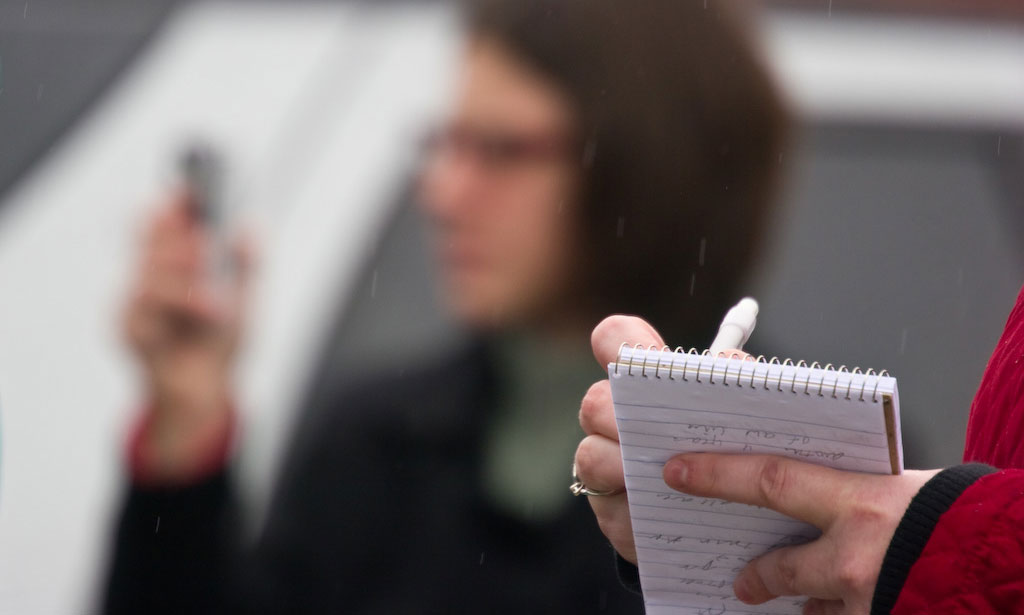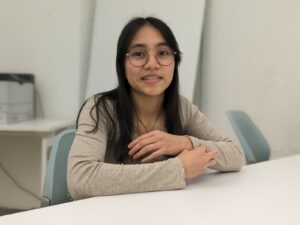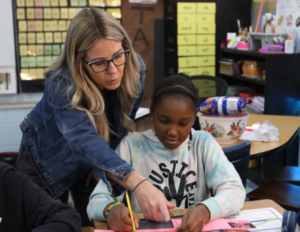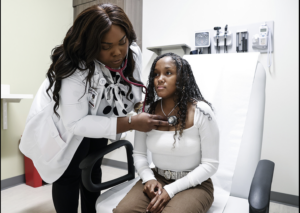
The Covid-19 pandemic changed everything. Here’s how the Rosalynn Carter Fellowships adapted.
By Susan Hunsinger
Program Associate, Mental Health Program
In March 2020, The Carter Center temporarily shuttered its offices as the Covid-19 pandemic swept the globe. Now, almost two years later, programs like the Rosalynn Carter Fellowships for Mental Health Journalism continue to adjust to a still evolving new normal.
The pandemic has highlighted the importance of mental health for everyone and made the fellowships’ mission of solid mental health reporting more important than ever. Here are five ways the program has adapted.
Nine journalists from the United States received fellowships in 2021.
The Carter Center’s Rosalynn Carter Fellowships for Mental Health Journalism awarded nine fellowships to experienced journalists for the 2021-2022 fellowship year—one more than in previous years—in light of the heightened need for solid mental health reporting during the Covid-19 global pandemic and beyond.
The latest fellows cohort includes a community news founder, local reporters, freelancers, and the second annual awardee of the Benjamin von Sternenfels Rosenthal Grant for Mental Health Investigative Journalism, in partnership with Reveal from the Center for Investigative Reporting.
Topics range from mental health in the Filipino American community and the impact of the pandemic on people over 50 years old to school-based behavioral health and the impact of border closings on mourning.
[Read more about this year’s fellows]
2020-2021 fellows and students have six more months to complete their projects.
While the pandemic has had enormous impact, its effects on journalism have been profound, from the tragic loss of life and livelihood to threats to a free press.
In collaboration with the U.S. Fellowship Advisory Board, fellows and student scholars on the yearlong fellowship received six additional months of close mentorship and support to complete their projects. The program also offered flexibility as some projects have shifted focus.
Projects will now wrap up in March 2022 rather than September 2021.
Fellows and alumni get free and expanded professional development opportunities.
In response to input from fellows, alumni and advisors, the program developed a robust program of workshops, training and events to support the community of fellows year-round.
Starting in fall 2021, fellows gather virtually every other month to connect and learn.
In November, the program hosted a class on virtual empathy, facilitated by the Rosalynn Carter Institute for Caregivers, on the importance and challenges of virtual empathy, and tips for displaying virtual empathy in online interactions.
To wrap up 2021, the fellowships hosted Yoga for Journalists: Nurturing Mental Health and Holding Space for Tough Times with The News Yogi Leslie Rangel, and mentorship calls with fellows and the advisory board.
In 2022, fellows can expect workshops on trauma-informed reporting, building trust, engaging their communities and more.
Connect, train and transform mental health—virtually.
In 2020, the fellowships held for the first time in its history a virtual annual training event for fellows. The training had previously been held in person at The Carter Center since the late 1990s.
Rebranded the RCJF Learning Lab in 2021, the event brings together past and current fellows, experts, advisory board members, and Carter Center staff and leadership for multiple days of networking and training on mental health reporting.
In 2021, training panels included how Covid changed the mental health landscape, reporting on trauma, building the cohort community, and best practices for mental health reporting.
We’re listening to our community to build a more equitable application process.
Every year, the fellowships adjust the application process, including requirements, evaluation criteria and tapping a diverse group of reviewers to help select final fellows.
In 2021 and 2022, under the leadership of Senior Program Associate Michelle Rivera, the program is taking a deep dive into the process by interviewing advisors, fellows and alumni, and applicants and incorporating suggested improvements.
Applications for the 2022-2023 fellowship year will open in February 2022.
Susan Hunsinger is the program associate for the Rosalynn Carter Fellowships for Mental Health Journalism and Public Policy. She implements program activities, manages social media and program communications, and support projects involving former First Lady Rosalynn Carter’s office. Mrs. Hunsinger joined The Carter Center in 2008.



